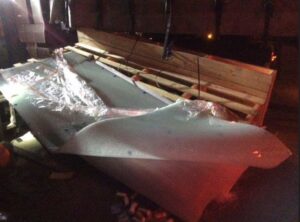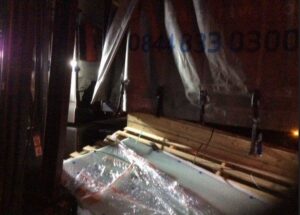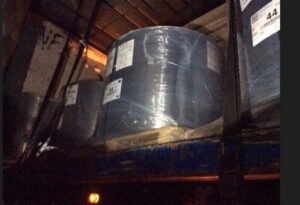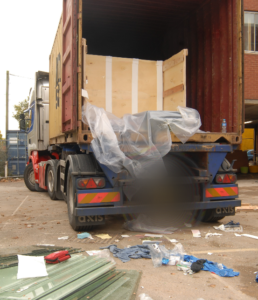Company fined after worker breaks rib falling into pit
A company has been fined after a worker fell into a moulding pit and suffered a broken rib.
The Peel Jones Copper Products Limited employee had opened up the company’s site at Maynard Foundry, Kilton Lane, Saltburn on 27 August 2021. The lights inside the company’s casting room were currently off and the worker had to walk from one side to the other in order to turn them on. While doing this, the worker lost their bearings and fell into one of the company’s pits, suffering a broken rib.
An investigation by the Health and Safety Executive (HSE) found the company had not properly assessed the risk created by the pits, and that suitable edge protection or covers for the pits had not been provided.
Following a visit by a HSE inspector in 2018, Peel Jones Copper Products Limited had been served with an Notification of Contravention, requiring the company to provide improved protection around the moulding pit. The company had installed edge protection but this was later removed as larger moulds began to be used by the firm. Prior to the incident in August 2021, there had been a previous incident when an employee fell into one of the company’s pits, though there were no significant injuries on that occasion.
Peel Jones Copper Products Limited, of Kilton Lane, Carlin How, Saltburn, Cleveland pleaded guilty to breaching Section 2(1) of the Health and Safety At Work Act 1974. They were fined £26,666 and ordered to pay £4,105 in costs at Teesside Magistrates’ Court on 24 January 2023.
HSE inspector Stephen Garner said: “The company failed to take suitable measures to prevent employees falling into its moulding pits. This was a clear and obvious hazard that was known to the company. There had been a previous incident and HSE had already taken enforcement action in relation to this particular risk in 2018. It should be immediately foreseeable that harm is likely to result from a system whereby employees are required to walk past unprotected fall edges in the dark in order to open up a site.”
Notes to editors
- The Health and Safety Executive (HSE) is Britain’s national regulator for workplace health and safety. It aims to reduce work-related death, injury and ill health. It does so through research, information and advice, promoting training; new or revised regulations and codes of practice, and working with local authority partners by inspection, investigation and enforcement. www.hse.gov.uk
- More about the legislation referred to in this case can be found at: https://www.hse.gov.uk/simple-health-safety/risk/index.htm
- HSE news releases are available at http://press.hse.gov.uk





